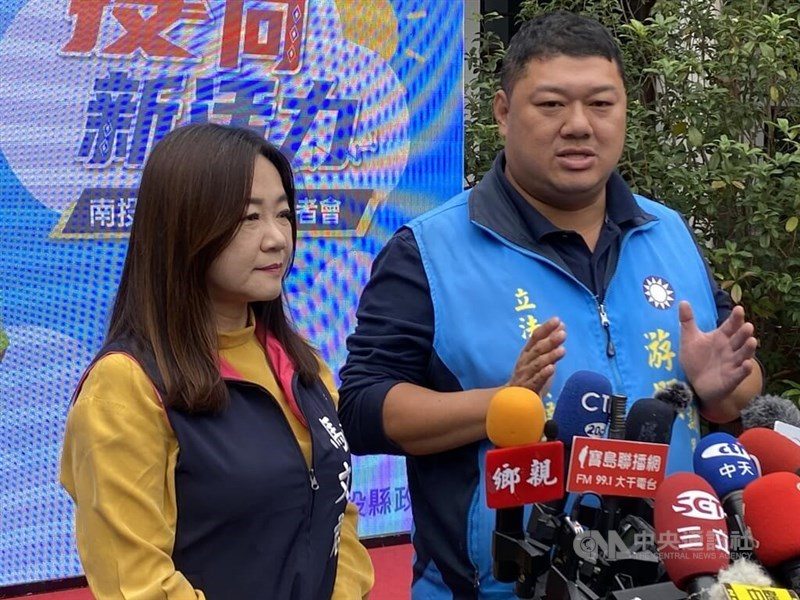In an unprecedented wave of political accountability, Taiwan’s Central Election Commission (CEC) has confirmed that 26 Kuomintang (KMT) lawmakers — nearly the party’s entire elected delegation from the 2024 legislative elections — are facing recall votes initiated by civil society organizations and backed by the ruling Democratic Progressive Party (DPP). Among them, Nantou County legislators Ma Wen-chun and Yu Hao are scheduled for recall votes on August 23, following similar motions already set for July 26 for 24 other KMT lawmakers.
🔍 Background: Why Are So Many Lawmakers Facing Recalls?
The recall wave stems from growing dissatisfaction over KMT lawmakers’ performance, controversial stances, and accusations of obstructionist behavior in the Legislative Yuan. Civil groups argue that the KMT has prioritized political gamesmanship over public welfare and transparency, while DPP supporters view the recall as a necessary response to what they describe as anti-democratic tactics — especially in light of the KMT’s perceived alignment with Beijing’s interests.
The campaign took off in mid-2024 after mass public petitions, online mobilization, and public outrage over several KMT-led legislative disruptions. The DPP has denied the recalls are politically motivated, insisting they are civic-driven accountability efforts.
🗳️ Why Ma Wen-chun and Yu Hao Are Being Targeted
Ma Wen-chun has long been a controversial figure, especially due to allegations she leaked sensitive military information about Taiwan’s domestic submarine program — an issue that severely damaged her public image. Although she has denied wrongdoing and was not criminally indicted, trust in her integrity has been shaken, prompting civic groups to push for her removal.
Yu Hao, a first-term lawmaker and rising KMT star, has been criticized for echoing KMT leadership’s stance against many of President Lai Ching-te’s policy priorities. Critics argue he has shown little legislative independence and has contributed to legislative gridlock.
In response, both lawmakers have publicly defended their records. Ma claims she is prepared for a “battle” and confident voters will affirm her performance. Yu called the recall campaign “a disguised attempt to reverse the people’s will,” suggesting the DPP is undermining democracy.
🧾 Timeline and Procedures
- July 15: Deadline for Ma and Yu to submit official statements of defense.
- Aug. 13–22: Televised briefings will be held by the CEC to inform the public about the recall process and give lawmakers a platform to defend themselves.
- Aug. 23: Voting day in Nantou County for Ma and Yu.
- July 26: Recall votes for 24 other KMT lawmakers, including several prominent Taipei figures like Fu Kun-chi, Wang Hung-wei, Hsu Chiao-hsin, and Lo Chih-chiang.
The CEC explained that Ma and Yu’s votes were pushed to August due to administrative limits in Nantou County, which cannot manage the procedures for multiple lawmakers simultaneously.
🧠 Broader Implications
This recall movement could significantly reshape the Taiwanese political landscape if successful. It also sets a precedent for holding legislators accountable shortly after elections — something rare in democratic systems.
If even a portion of these recalls succeed, the DPP could potentially regain a working majority in the Legislative Yuan or force snap by-elections favorable to its policy agenda. On the other hand, failed recalls could strengthen the KMT by portraying it as a victim of political persecution, rallying public support ahead of the next national election cycle.
Observers suggest that this is not merely a political tug-of-war but a reflection of a maturing Taiwanese democracy where citizens are increasingly demanding results, transparency, and responsiveness from elected officials — regardless of party affiliation.
🧠 FAQs
Why are so many KMT lawmakers being targeted at once?
Civic groups allege that the KMT has obstructed legislative functions and failed to act in the public interest. Many of the recalls are based on perceived misconduct, obstruction, or controversial stances.
Are these recalls legal and democratic?
Yes. Taiwan’s Civil Servants Election and Recall Act allows voters to initiate recalls under specific thresholds. The CEC has validated each case before moving forward.
What is the political impact of successful recalls?
It could weaken the KMT’s presence in the legislature and force by-elections. It may also empower the DPP and shift Taiwan’s domestic legislative dynamics.
Can lawmakers campaign during the recall process?
Yes. They can submit statements of defense, hold press conferences, and participate in public hearings.
What happens if the recall fails?
The lawmaker retains their seat, and the same group cannot initiate another recall for the same lawmaker during the same term.


